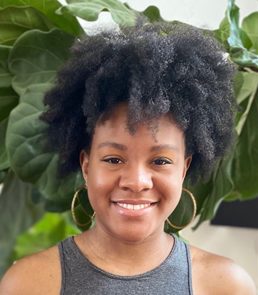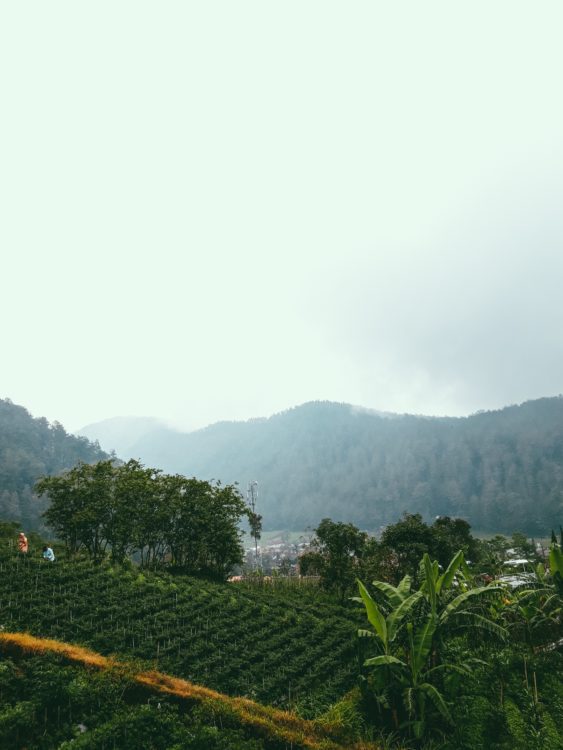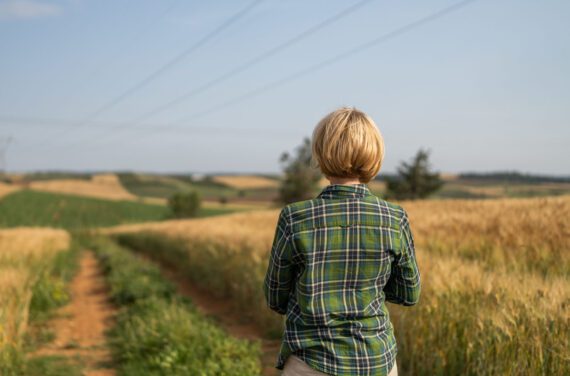By Nicole Taylor Morris
Fannie Lou Hamer is rumored to have said, “If you give a hungry man food, he will eat it. [But] if you give him land, he will grow his own food,” while referring to her Freedom Farm Cooperative, which was established in 1967 in rural Mississippi.
We enter Black History Month in the middle of a pandemic that disproportionately impacts Black communities—while those same communities continue to face state violence and police brutality. Fannie Lou Hamer’s wisdom continues to ring true. She speaks to the need for deep systemic change, particularly in relation to racial equity and structural opportunity in land access, rather than unsustainable Band-Aid solutions.
As one of the few Black women recognized publicly as a Christian Civil Rights leader, an intellectual, and a landowner, Hamer embodies what Dr. Melanie L. Harris terms Ecowomanism. Ecowomanism intertwines womanist theology—which focuses on the spiritual experiences of Black women as a pathway toward liberation and equity—with an ecological lens that examines kinship, care, and deep spirituality rooted in land stewardship. This lens can provide key insights to healing through land reclamation for Black and Indigenous people in the United States.
Black people continue to face barriers to land ownership and farming, while also facing structural racism and oppression that contribute to disparities and negative outcomes in spiritual, mental, physical, and socioeconomic well-being.
This is dramatically reflected by the fact that as of the 2017 USDA census, registered Black-owned farms in the United States make up less than 2 percent of all farms. Black women own marginal amounts of those farms. Kafi Dixon, founder and executive director of Common Good Cooperatives in Massachusetts, says this of her farm founded by and for Black women:
“This space [is focused] on the love, respect, and acknowledgement of all that Black women bring forth. And how do we reward that? By giving to them and creating a space of joy for them. Of happiness, of health. That seems like safe space, that’s protected, that’s healing.”
Dixon celebrates self-sustainability and intentional trauma-recovery at her cooperative farm space.
This work has inherently spiritual dimensions when seen through an ecowomanist lens that centers equity, which is inextricably linked to land access, healing, and community. The opportunity to grow our own food and sustain ourselves and our communities also cultivates a place of healing, connection, and reclamation of our relationship to the land poisoned during the trauma of slavery. In many ways, this also strengthens our connection to God.
Psalm 89:1-11 (KJV) refers to the covenantal relationship we have with God. Psalm 89:11 reads, “The heavens are thine, the earth also is thine: as for the world and the fulness thereof, thou hast founded them …” and Psalm 89:3-4 says: “I have made a covenant with my chosen, I have sworn unto David my servant. Thy seed will I establish forever.”
After the enslavement of Black people, Jim Crow laws, and the civil rights movement, there is no reason for Black people to still be fighting for our basic humanity, to be understood, or for the right to own land and to have resources to sustain that land.
“Black Lives Matter” is still not inherent to many people; Black history is only intentionally celebrated publicly once a year. This is reflective of a deep cultural wound that can only be remedied with radical healing, genuine accountability, care and love for one another, and our sustaining Earth.
Ecowomanism and the movements for Black lives and Black-owned land remind us that we are divinely tied to the land and that now is the time for our faithfulness to God, to the land, and to each other.
Nicole Taylor Morris (she/her/hers) is a womanist bioethicist, scholar-activist, doula, and aspiring movement chaplain and healer. She holds a Master of Theological Studies from Harvard Divinity School focused on the intersections of Black women and community’s health, community-centered healing, and the role of spirituality in wellness.



